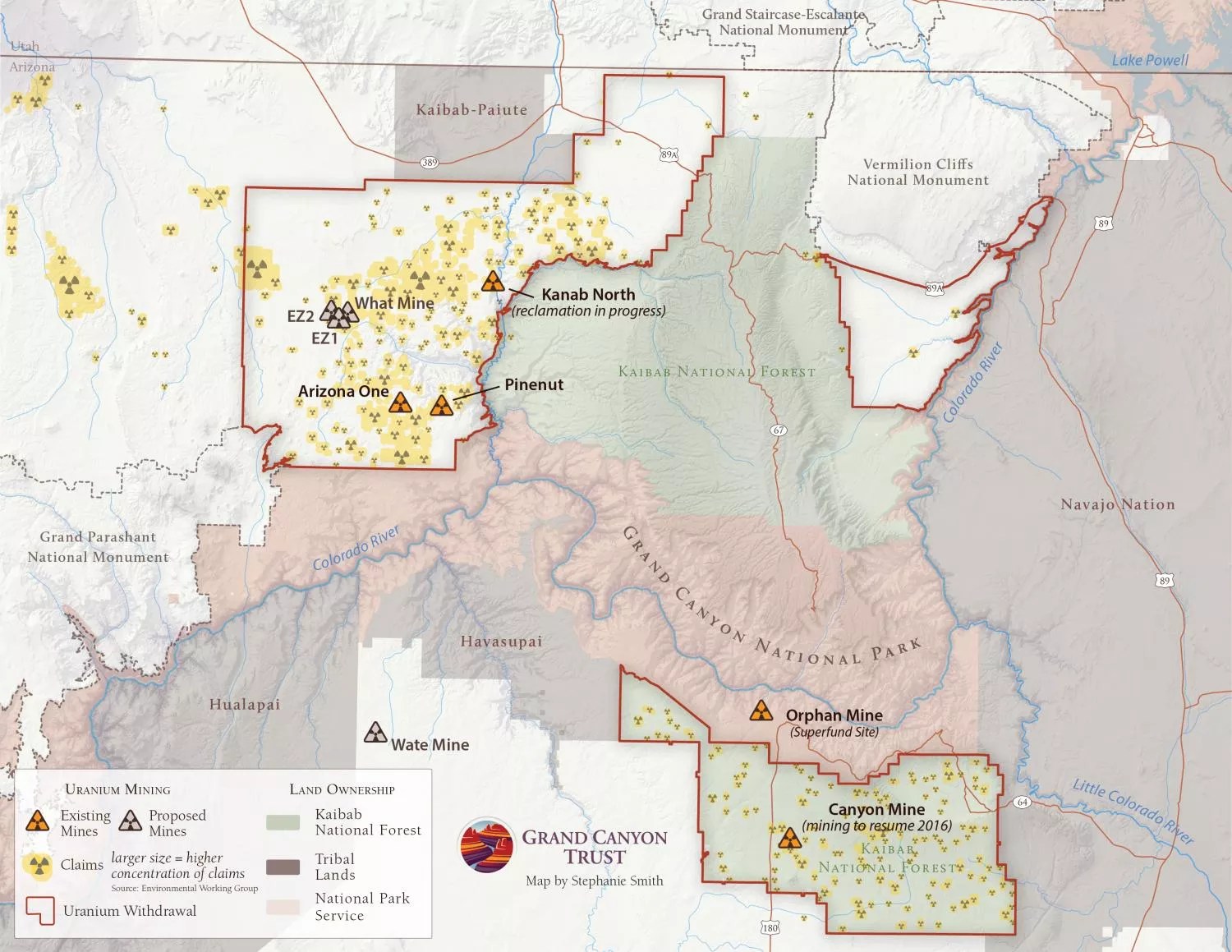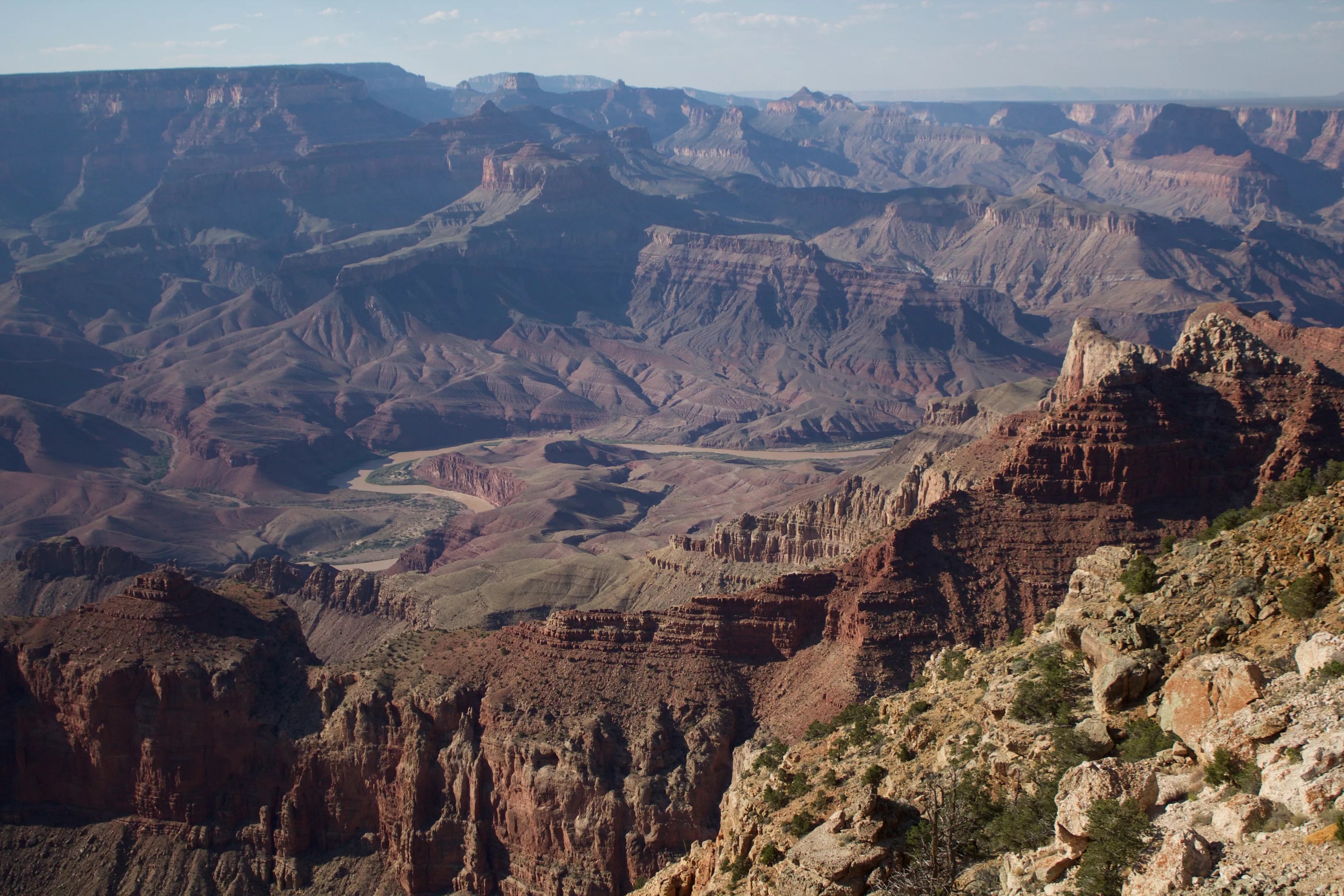
Grand Canyon Trust

Audio By Carbonatix
The news that President Donald Trump is planning to review and possibly scrap some of the national monuments put in place by his predecessor makes it clear – if it wasn’t already – that he’s not a big fan of anything that President Obama did, or of the outdoors. (Aside from golf courses, that is.)
So it’s understandable that environmentalists are worried that the Obama administration’s moratorium on uranium mining in the area surrounding the Grand Canyon could be up next on the chopping block.
That moratorium was announced by the Department of the Interior in 2012, and banned new uranium claims until 2032. Existing claims and mines were unaffected.
It was great news to environmental groups like the Grand Canyon Trust, the Sierra Club, and the League of Conservation Voters, who had spent years pointing out the environmental hazards of uranium mining – particularly the threat of polluting the Colorado River, which provides water to 40 million people in Arizona and the Southwest.
But back in March, Trump signed an executive order promoting “energy independence and economic growth.” It requires heads of each government agency to identify any federal guidelines that are getting in the way of domestic energy production, and tell him which ones can legally be reversed.
“The report shall include specific recommendations that, to the extent permitted by law, could alleviate or eliminate aspects of agency actions that burden domestic energy production,” the executive order states.

How close to the Grand Canyon should we allow mining?
Miriam Wasser
While we won’t know for sure until the Department of the Interior submits its report in late July, it’s quite possible that the moratorium on new uranium claims around the Grand Canyon would fall into that category. (The Department of Interior didn’t return a request for comment.)
“The administration’s goal has been to remove anything that could impede American energy development – that’s obviously very broad,” Amber Reimondo, a program director for the Grand Canyon Trust, points out.
Needless to say, that’s not a prospect that thrills environmental activists – who have repeatedly pointed out that uranium mining threatens Red Butte, which is sacred to the Havasupai tribe, and the Redwall Aquifer, their only source of fresh drinking water.
“The moratorium has been put in place for a good reason,” Reimondo says. “It was well-thought out, and intended to safeguard people who live around and inside the Grand Canyon.”
If the mining ban were overturned, Trump would likely receive significant local support. Mohave County officials have already been lobbying the administration to lift the ban. And both Arizona’s senators have publicly expressed their opposition to it.
When the moratorium was announced in 2012, Jeff Flake, then a congressman, described it as “another example of the Obama administration’s overreach that will stymie local economic growth and local job creation,” and Senator John McCain called it “a devastating blow to job creation in northern Arizona.” (Flake previously worked as a lobbyist for a uranium mining company.)
But Ted Zukoski, a staff attorney at Earthjustice, which represented the Havasupai tribe in their fight to uphold the mining ban, isn’t worried yet.
“I think it would be extremely difficult for the Department of the Interior, with a stroke of the pen, to get rid of it,” he says.
One potential roadblock, he says, is that the decision would be politically unpopular. After all, we’re talking about one of the great wonders of the world here, and a major driver of Arizona’s tourism economy.
“This is the Grand Canyon,” he points out. “It’s on the license plate.”
In addition, the Department of the Interior would have to make sure that allowing new mining claims wouldn’t violate the National Environmental Policy Act and the Endangered Species Act. And they’d have to address new scientific research about how uranium mines interact with groundwater, and the risks of contamination.
“It would be a political and legal minefield for the administration if they chose to walk into it,” Zukoski concludes.
But, as we all know, if there’s one thing the Trump administration loves, it’s walking right into minefields.